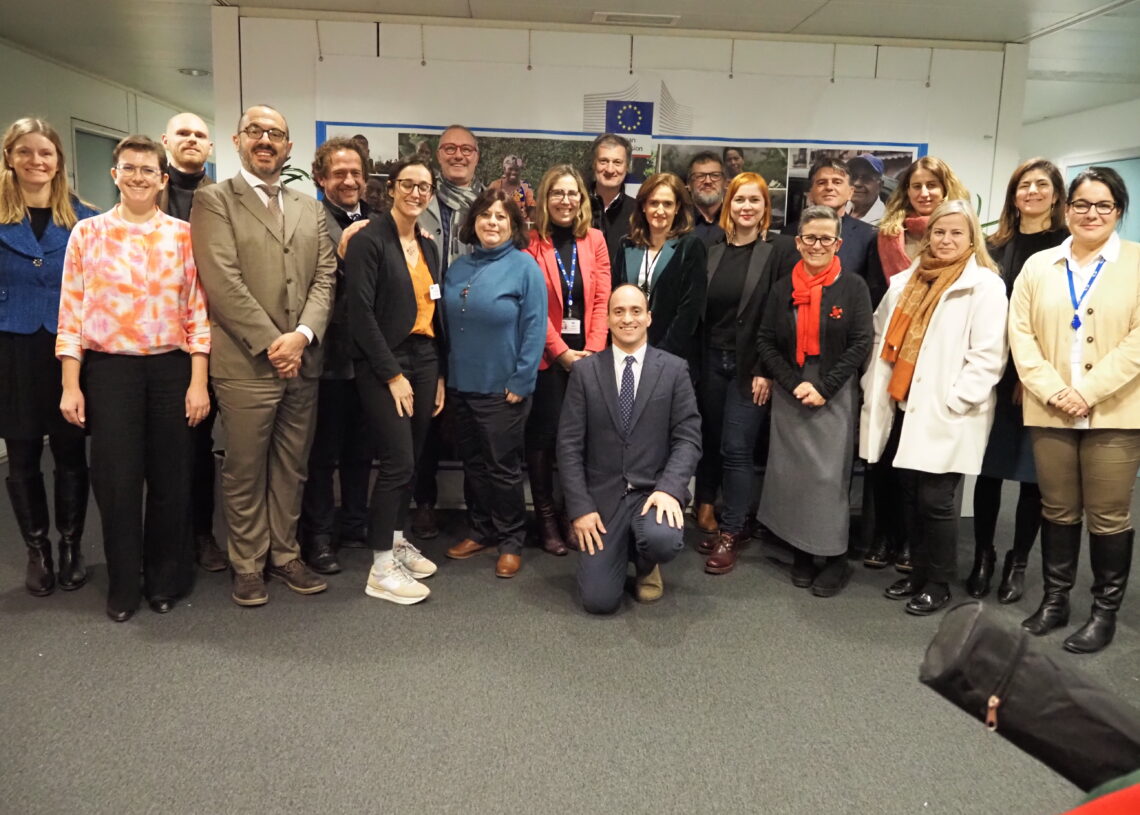On Tuesday 13 December, the COPOLAD programme’s steering committee took place in Brussels, where the programme’s funders and partners, as well as other organisations of UE interested in the drugs issue, meet.
During this meeting, the main impacts of the programme in 2022 were presented. On the one hand, the programme has promoted human rights and gender equality in drug policies in Latin America and the Caribbean through its trainings and communities of practice, publications and meetings. On the other hand, it has responded to the main challenges of drug policies related to the effectiveness and proportion of penal responses, access to care for the most vulnerable people (both from the point of view of drug use and the illegal drug market) and has made an effort to support the economic inclusion of people linked to the drug market.
In addition, COPOLAD has received more than 95 proposals for the accompaniment of national public policies, of which 38 have been pre-selected based on criteria of sustainability and coherence with the objectives of the programme focused to the improvement of drug policies and the 2030 Agenda.
During 2022, support has been given to a comprehensive and balanced debate on drugs, focusing on the reinforcement of the principles of the European Drugs Strategy, which include the strengthening of equality, respect for human dignity, democracy and human rights, among others.
High-level meetings
The programme has participated in various high-level meetings on drugs, holding parallel events at the Annual Meeting of the National Convention on Drugs, the Latin American Conference on Drugs, the Lisbon Addictions conference organised by the European Monitoring Centre for Drugs and Drug Addiction or meetings of experts from the United Nations on Alternative Development or CICAD annual meeting. In addition to missions to Argentina, Paraguay, Ecuador, Peru, Colombia, Mexico, Honduras, Chile, and a study trip to the Amazon with 14 delegations from Latin America to learn about good practices on alternative crops to coca.
It has also strengthened alliances with the Ibero-American Network of Anti-Drug Prosecutors and GAFILAT, a Latin American Financial Action Task Force made up of 18 countries from South, Central and North America. The programme has held in 2022 more than 25 seminars on issues related to criminal financial investigations, new psychoactive substances, gender and drugs, human rights and alternative development.
Key year for Latin America
In 2023, COPOLAD faces a crucial moment, especially during Spain’s European presidency of the Council of the EU in the second half of 2023, which it hopes can serve to strengthen links with the Latin American and Caribbean region and address new regional debates on drug policies and debates on their effectiveness.
The steering committee meeting, which took place on Tuesday 13 December at INTPA’s offices, was attended by representatives of the programme’s funders from the European Commission’s Directorate General for International Partnerships (INTPA), the Council of the EU, human rights officers or DGHome, members of the consortium forming the programme from both FIIAPP and IILA, collaborating partners such as GIZ or EMCDDA and representatives of the drug agencies of the implementing countries of the programme (Spanish Government Delegation of the National Plan on Drugs and the Central Directorate of the Italian Anti-Drug Service).






